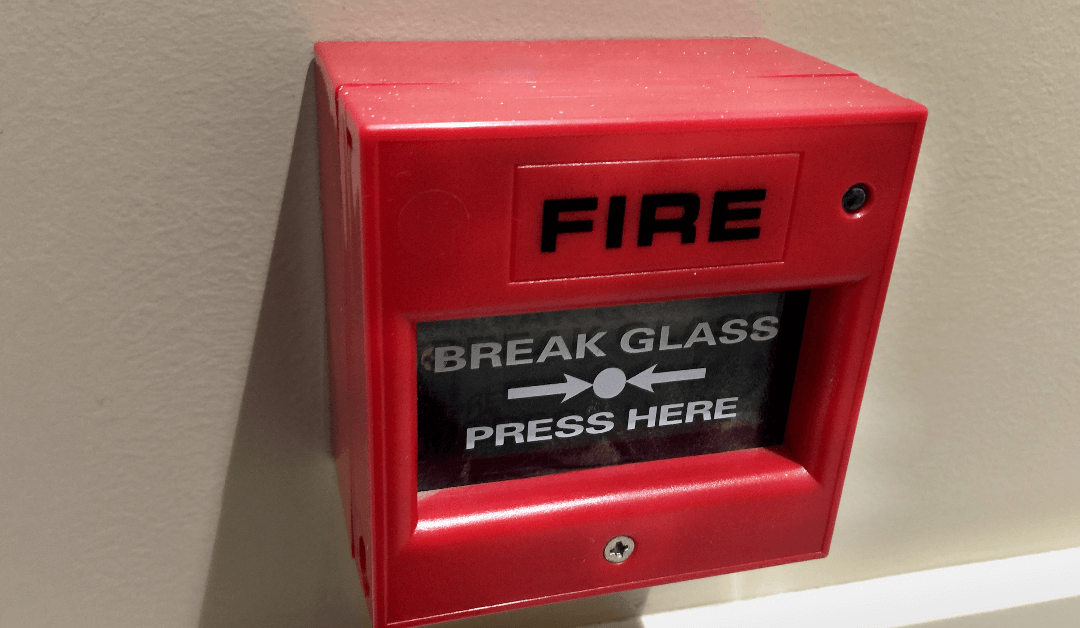If you operate a motel, service station, cafe, or other commercial facilities, your business fire alarm has been triggered at some stage, whether purposefully or unintentionally. We’ve all heard how loud fire alarms can be. They may even appear to be extremely loud. We also know that the police and fire departments are on their way as soon as the alarm goes off. But do you understand how the mechanism works? What happens between the moment the fire alarm went off and the time the cops arrive, and why is the chronology so important?
With our fire alarm systems, Premier fire alarm system’s aim is to keep your lives and property safe. While you may be aware that fire detection systems are necessary for your facility, you may not know how they operate—knowing how they can assist you to recognize when a risk has arisen and how to respond correctly. Here’s how they work.
First thing first: heat or smoke detectors?
Among the first questions you must ask regarding your fire alarm system is whether it is a heat sensor or a smoke sensor. Based on your response, you’ll understand that your protection system is looking for a specific fire profile.
When a particular temperature is achieved in its proximity, heat detectors alert the alarm panel. This temperature is generally very high, so it detects a fire correctly. It does not emit a false alert in situations such as a space maintained at elevated temperatures throughout the winter months.
Smoke detectors perform precisely what their name implies. In contrast to heat detectors, most houses and businesses include smoke detectors. However, other types of smoke detectors indicate the presence of smoke in different ways, such as ionization and photoelectric. Speaking of ionization and photoelectric, you must also know what kind of smoke detector is installed at your facility. Smoke detectors are classified into two categories. To detect smoke in the air, an ionization smoke detector senses electronically charged particles (ions). When this happens, the alarm goes off.
A photoelectric smoke detector detects smoke in the air by emitting an infrared LED light beam. Over the duration, the sensor transmits radiation through the chamber of the optical detector. An alert is activated if the light detects a large number of smoke particles traveling past it.
How do fire detectors go off and operate?
A fire alarm system is a web of sensors that detect and sound when there is a fire. The fire alarm control panel (FACP), which serves as the system’s brain, is the most crucial component. When the detecting devices sense smoke, they notify the FACP, which chooses what measures to take, such as alerting the fire brigade, activating the fire sprinkler system, activating the fire suppression system, sounding the horns, and lighting the strobes, and so on.
To minimize false alarms, it is critical to maintain and examine all of this equipment regularly. If there is an issue with a device or component of your fire alarm system, the control center will display a message signal such as “trouble,” “supervision,” or “alert.”
A trouble signal signifies an operational problem such as a power outage, the need to replace batteries, a circuit breaker, or VOIP (Voice Over IP Switch) communication issues. A trouble warning is often shown by a yellow light on your control unit.
A supervisory signal signifies a fault with linked fire fighting equipment, such as your fire hydrant or suppression system, that your alarm system controls. A supervisory signal will be shown if a usually closed sprinkler valve is left open following an examination. Likewise, if your compressor fails or there is a shift in humidity that disrupts the usual operation of your duct sensors, the alarm control panel will display a supervisory signal.
An alert signal necessitates urgent action. False alarms are most commonly caused by a lack of performance testing, inadequately cleaned smoke detectors, or a malfunction with the delayed function on a water flow switch.
Contact us:
Remember to call your local fire authority when you examine fire safety at your business property to confirm that you comply with fire legislation and requirements. Ensure that you have the correct quantity of fire extinguishers in the right places and that your fire suppression and sprinkler systems fulfill all regulations.
Fire detection systems aid in the saving of lives. Whether you require a routine fire alarm service and maintenance or repair due to late-night issue calls, the premier fire crew will be there. We provide fire protection services in Broward County to safeguard your workplace’s safety. So what are you waiting for, contact us now.


